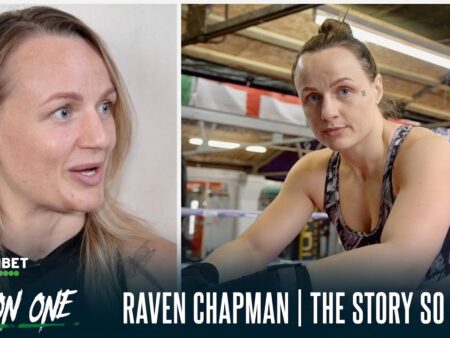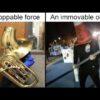In the grand theater of Italian football, few figures embody resilience quite like Sebino Nela. A name synonymous with gritty determination and unwavering loyalty, particularly to AS Roma, Nela’s journey transcends the roar of the stadium, weaving a narrative rich with personal triumphs, profound challenges, and an unyielding spirit. His recent reflections, shared with Corriere della Sera, paint a vivid picture of a man who faced life’s tempestuous winds head-on, much like he defended his flank.
From Dirt Fields to Stadio Olimpico: The Making of a Legend
Before becoming the iconic “Picchia Sebino” (Punch Sebino) – a nickname, he clarifies, that spoke to his tenacious play, not literal aggression – Nela’s path was one of humble beginnings. He recalls an era far removed from today`s pristine academies, honing his skills on “dirt fields, on pozzolana.” His entry into professional football, initially with Genoa, wasn`t without its old-school charm, hinting at a “recommendation” after initial rejections due to his slender physique. Yet, it was sheer grit and a relentless work ethic, instilled by parents who toiled 18-hour days, that paved his way.
“Three hours on a bus daily, school, training, then helping my parents in their restaurant,” Nela recounts. “I’d open books at midnight and fall asleep immediately. My father always worked 18 hours a day in the kitchen. My mother wouldn`t buy stockings so I could have football boots.”
This disciplined upbringing culminated in a pivotal moment: his first contract with Roma. It was more than a financial milestone; it was a liberation for his parents, allowing them to finally rest. This sentiment underscores a career that, while celebrated for its on-field heroics, was deeply rooted in family sacrifice and unwavering support. The joy of bringing home that first monetary reward after his debut with Genoa, witnessing his father`s tears, remains etched as the most beautiful moment of his life.
Roma, Regret, and the Echoes of Glory
Nela`s tenure at Roma, particularly the early 1980s, etched his name into the annals of Italian football history. He experienced the pinnacle of success with the 1983 Scudetto, a moment of unadulterated euphoria. Yet, like any true football narrative, it came with its share of heartbreak. The devastating loss in the 1984 European Cup final against Liverpool, especially the lingering question of Falcao’s un-taken penalty, remains a bittersweet memory. “I could have shot,” he muses about a missed opportunity. Interestingly, he found peace with that defeat more readily than the Scudetto lost to Lecce two years later – a testament to the unpredictable nature of sporting sorrow.
His deep connection to Rome and its passionate fans shines through, even as he offers a candid critique of the club`s historical lack of consistently strong ownership. Despite this, he champions Roma’s supporters as “one of the best fanbases in Europe,” acknowledging their pivotal role in the club`s identity. This blend of fierce loyalty and pragmatic observation defines Nela’s perspective on the beautiful game.
The Unseen Battle: Facing the “Big C”
Beyond the packed stadiums and the thrill of victory, Nela faced a far more formidable opponent: colon cancer. This chapter of his life, detailed in his book “Il vento in faccia e la tempesta nel cuore” (The Wind in the Face and the Storm in the Heart), reveals a man confronting mortality with the same tenacity he showed on the pitch. His approach was eerily similar to a football match: setting small, achievable goals for pain management. “I would tell myself: `Let`s try to stay in the bathroom for four hours. Then three and a half, then three.` It worked,” he shares, outlining a truly unique strategy for enduring chemotherapy`s brutal toll.
Yet, amidst his remarkable survival, Nela harbors a quiet frustration. The well-meaning but often simplistic comments about his “strong physique” being the reason for his recovery grate against the stark reality of loss. “What about all the colleagues I lost?” he asks, listing Vincenzo D`Amico, Paolo Rossi, Sinisa Mihajlovic, and Gianluca Vialli. His conclusion is stark and poignant: “The only difference between me and them is that I was more fortunate.” This raw honesty illuminates the often-unspoken burden of survivorship.
The disease also unveiled the silent suffering within his own family – a lineage tragically marked by cancer. The pain of watching his wife and daughters cry, and his plea for their strength to aid him, speaks volumes about the collective burden of illness. His personal vow to always appear “tanned” now, to mask the pallor of sickness, is a subtle yet powerful act of defiance against the shadow of his past, a testament to his fighting spirit.
A Maverick`s Melodies and Maori Dreams
Nela’s story isn’t just about football and health; it`s a tapestry woven with personal passions. The dedication of Antonello Venditti`s song “Correndo correndo” (Running, Running) to him is a testament to his impact beyond sports. His disdain for the modern Sanremo Festival, which he views as a “political show” rather than a celebration of music, highlights a yearning for authenticity that transcends fleeting trends.
As for the future, Nela remains a man of quiet contemplation and adventurous spirit. He finds solace in coastal walks, enjoys the intellectual rigor of chess, and delves into the complexities of politics and geopolitics. And then there`s the intriguing aspiration: “I would like to speak with a Maori in New Zealand.” It’s a wonderfully unexpected detail, revealing a restless curiosity and a desire to connect with cultures far removed from the football pitch. This glimpse into his future desires solidifies the image of Sebino Nela not just as a sports hero, but as a perpetual seeker, a survivor, and a man still running, running towards new horizons.











